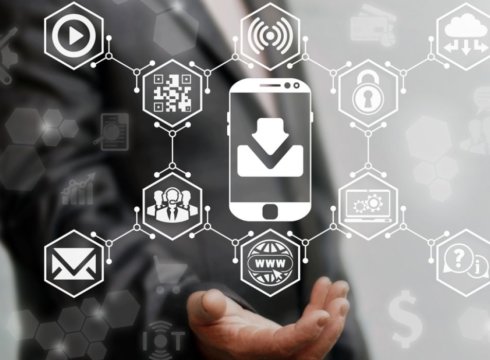Inc42 Daily Brief
Stay Ahead With Daily News & Analysis on India’s Tech & Startup Economy
There is perhaps no other industry that has been as thoroughly impacted by the advent of the digital age as the retail industry. Ecommerce has become a way of life, as smartphones become the first and often the most preferred screen for consumers to interact with retailers. Online retail, as a result, has become a major driver for the Indian economy in recent times; e-commerce looks set to emulate its exponential growth over the last couple of years to be worth $100 Bn by the end of 2020. The overall retail ecosystem in the country is expected to benefit from this surge and achieve a net worth of more than $1.3 trillion by the end of the decade – a number which is more than the combined GDPs of Lithuania, Slovenia, Egypt, and Nigeria, and is roughly equal to the overall GDP of South Korea.
The overall retail ecosystem in the country is expected to benefit from this surge and achieve a net worth of more than $1.3 Tn by the end of the decade – a number which is more than the combined GDPs of Lithuania, Slovenia, Egypt, and Nigeria, and is roughly equal to the overall GDP of South Korea.
This massive business opportunity on offer means that the retail sector is currently one of the most fiercely contested market segments in India. This cut-throat competition requires retailers – online and offline both – to gain any and all business edge they can in order to survive and succeed.
Cloud telephony, with its focus on enabling smoother end-user communications for businesses, has emerged as a key differentiator for retail players looking to optimise their operations and maximise their revenues.
With 2016 being the landmark year for cloud-based communications in India, here’s looking at a few upcoming trends that will underline the growing importance of cloud telephony in the retail industry this year:
Retail As A Service (RaaS)
Legacy retail operations have traditionally incorporated different business verticals such as inventory, shipping, and product development, all of which aggregate data in different ways. Loading these diverse operations onto a single cloud-based platform allows retailers to operate their business as a retail-as-a-service (RaaS) offering. This particular trend will gain traction in 2017, as more and more retailers implement cloud communications services to unify their diverse operation verticals.
Greater Flexibility And Adaptability
With technology becoming integral to each and every aspect of everyday lives, offline retailers are no longer averse to implement digital tools to give their operations a boost. Having already played a major role in helping the offline retail sector achieve technological parity with its online counterpart, Cloud telephony will continue to enable greater operational flexibility and adaptability for retailers.
Not only can cloud communications platforms allow businesses to accurately predict the load on their communications infrastructure through intelligent algorithms, they can also enable swift and convenient upscaling and downscaling of operations as per the requirement.
This flexible, adaptable approach will gain greater favour with Indian retailers in the near future, and will drive the adoption of cloud telephony in the retail market.
Cloud-Based PBX And UC
Installing legacy hardware to manage business communication is a costly affair, particularly due to the heavy installation costs and monthly licensing fees for various IVR solutions. Retailers in 2017 will move away from physical systems and migrate onto cloud-based communications platforms. As a result, services providers with VoIP and SIP services will witness a surge in demand for their offerings from the retail sector.
Real-Time Response
Cloud technology makes it extremely convenient to track and manage data for businesses, which makes it possible for retailers to identify and address consumer concerns in real-time through proactive customer service measures. It also allows retailers with physical stores to detect consumer movement, enabling greater in-store personalisation and targeted merchandising. A significant number of retailers will therefore seek to leverage these features to enhance their customer service and improve the overall retail experience for their consumers.
Driving Operational Cost Effectiveness
Migrating the entire business communications infrastructure onto cloud allows retailers to aggregate and analyse data in much larger volumes than ever before. This data, when processed, can not only be used to optimise various business functions and drive greater revenues, but also to minimise operational costs and boost profitability.
The need to install and maintain physical hardware is also eliminated, which further brings down the costs associated with retail operations. This enhanced efficiency of operations will entice more retailers into adopting cloud communications services for their businesses.
Note: We at Inc42 take our ethics very seriously. More information about it can be found here.


